Publications
Articles, publications, books, tools and multimedia features from the U.S. Institute of Peace provide the latest news, analysis, research findings, practitioner guides and reports, all related to the conflict zones and issues that are at the center of the Institute’s work to prevent and reduce violent conflict.
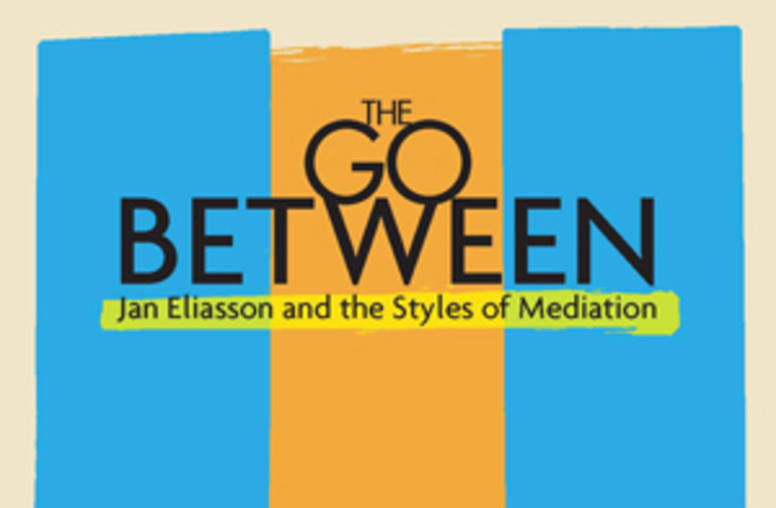
The Go-Between
This volume explores international mediation through the lens of Ambassador Jan Eliasson, an international go-between with a remarkable track record. The authors draw lessons for the peacemaking process from their examination of how Eliasson entered, prepared, pursued, and finally ended his mediation efforts.
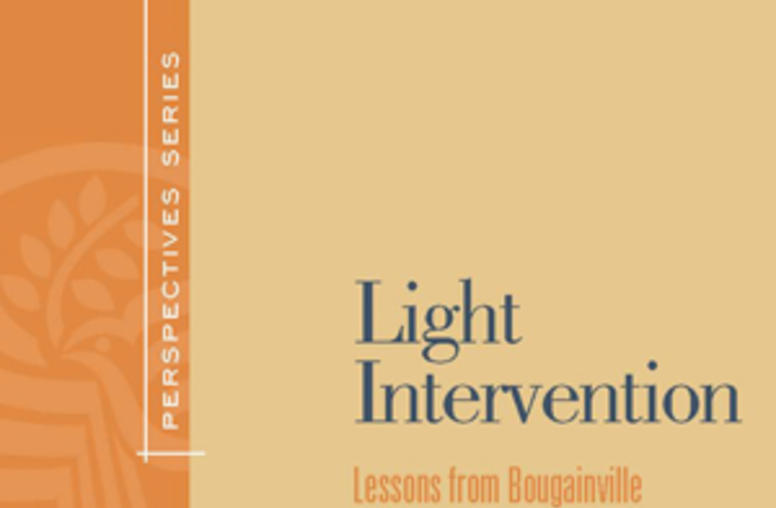
Light Intervention
Regan examines the ideal conditions for light international intervention and analyzes the remarkably successful Bougainville peace process, which ended the apparently intractable, violent, and deeply divisive separatist conflict that for much of the period from 1988 to 1997 destabilized both Papua New Guinea and the wider Pacific islands region.
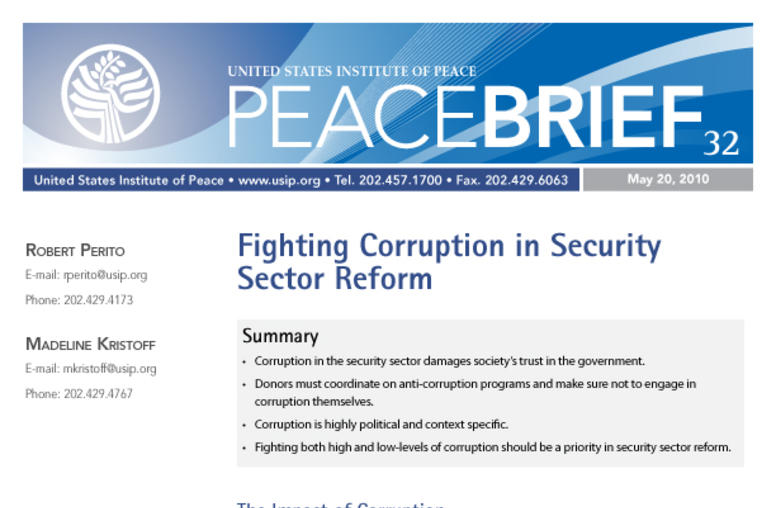
Fighting Corruption in Security Sector Reform
Corruption in the security sector damages society’s trust in the government. Donors must coordinate on anti-corruption programs and make sure not to engage in corruption themselves.
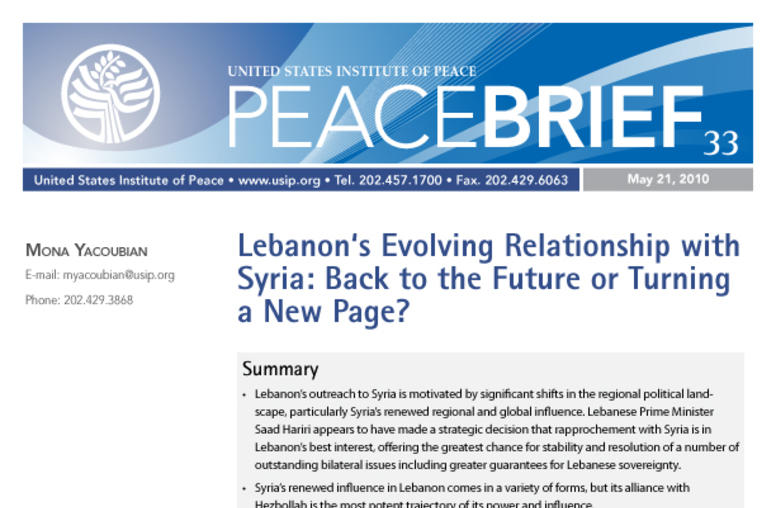
Lebanon‘s Evolving Relationship with Syria
Lebanon’s outreach to Syria is motivated by significant shifts in the regional political landscape, particularly Syria’s renewed regional and global influence. Lebanese Prime Minister Saad Hariri appears to have made a strategic decision that rapprochement with Syria is in Lebanon’s best interest, offering the greatest chance for stability and resolution of a number of outstanding bilateral issues including greater guarantees for Lebanese sovereignty.
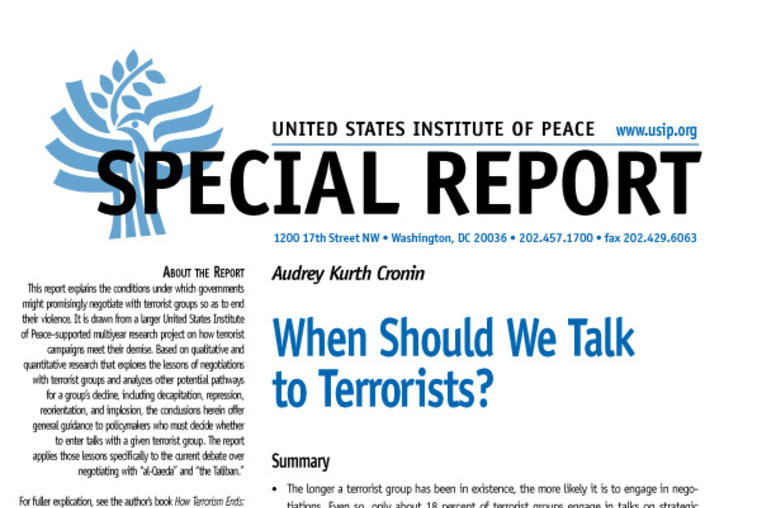
When Should We Talk to Terrorists?
Summary The longer a terrorist group has been in existence, the more likely it is to engage in negotiations. Even so, only about 18 percent of terrorist groups engage in talks on strategic issues at all. When groups do enter talks, the most common pattern is for negotiations to drag on, with the conflict occupying a middle ground between a stable cease-fire and high levels of violence. Negotiations do not necessarily result in a cessation of the violence: about half of the groups t...
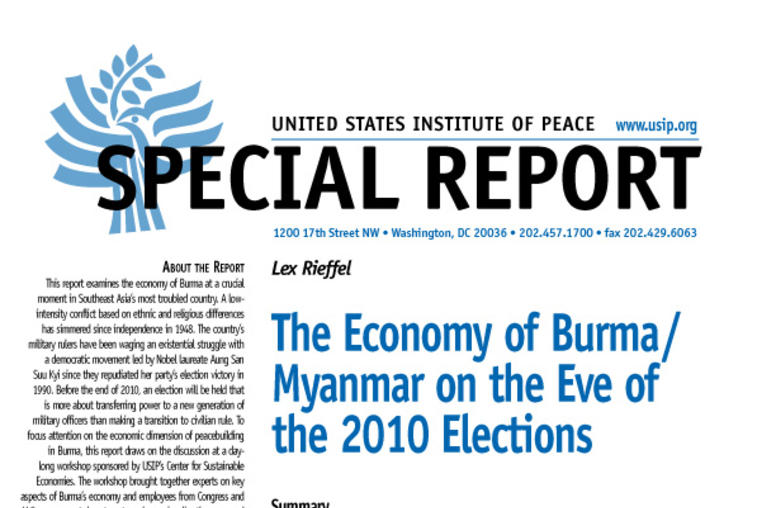
The Economy of Burma/Myanmar on the Eve of the 2010 Elections
Summary The government of Burma is undergoing a critical transition: Before the end of 2010, the military regime that has ruled the country since a palace coup in 1998 will hold an election based on a constitution drafted in a nondemocratic process and approved by a referendum in 2008. The referendum fell far short of global standards of credibility and the election is likely to yield a government that neither the antimilitary movement nor the international community views as legitimat...
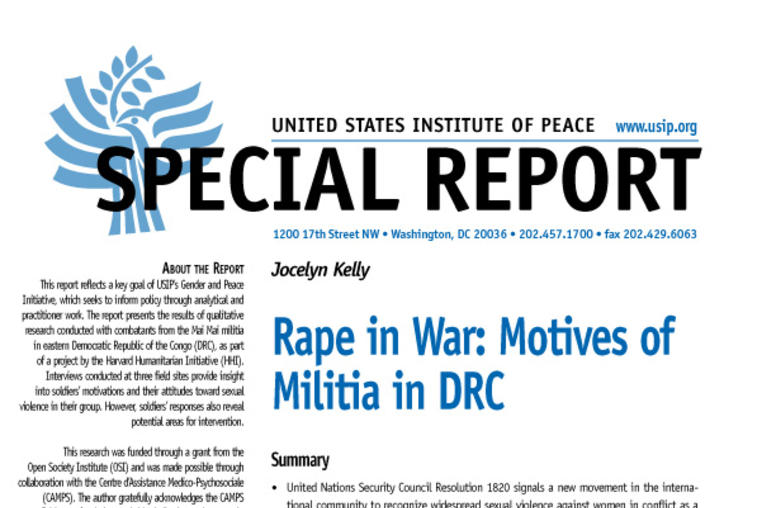
Rape in War: Motives of Militia in DRC
Summary United Nations Security Council Resolution 1820 signals a new movement in the international community to recognize widespread sexual violence against women in conflict as a threat to international peace and security. Research on sexual and gender-based violence (SGBV) has predominantly focused on victims and survivors of rape. A better understanding of the roots of SGBV in conflict, however, can only be gained by examining the experiences and motivations of perpetrators. SG...
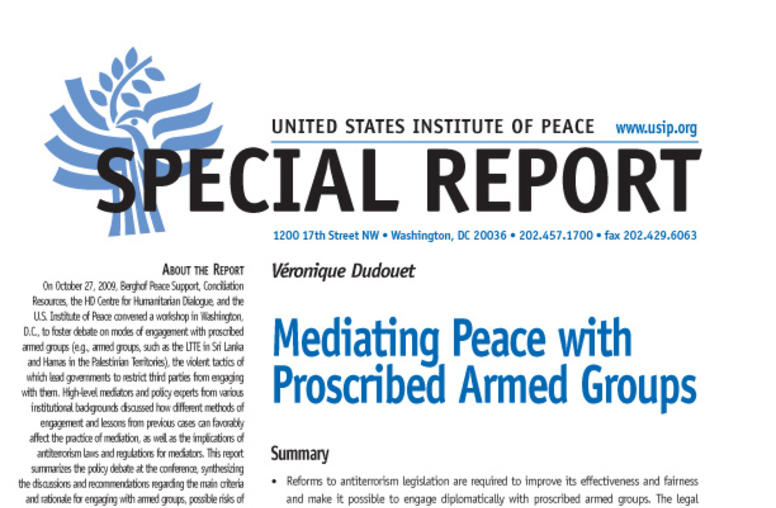
Mediating Peace with Proscribed Armed Groups
Summary Reforms to antiterrorism legislation are required to improve its effectiveness and fairness and make it possible to engage diplomatically with proscribed armed groups. The legal bases for proscription should be clarified and the criteria for delisting published. Listing and delisting instruments should be more nuanced and flexible. In addition, a separate legal and political component should facilitate engagement with proscribed groups in peace processes and humanitarian work...
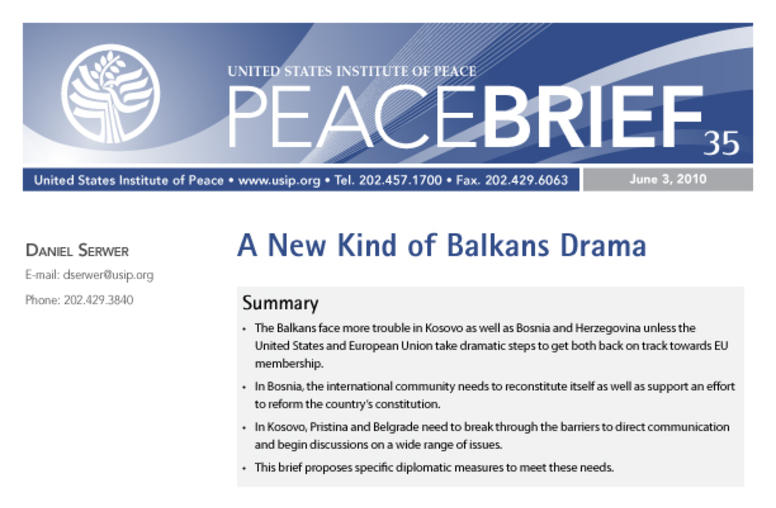
A New Kind of Balkans Drama
The Balkans face more trouble in Kosovo as well as Bosnia and Herzegovina unless the United States and European Union take dramatic steps to get both back on track toward EU membership.
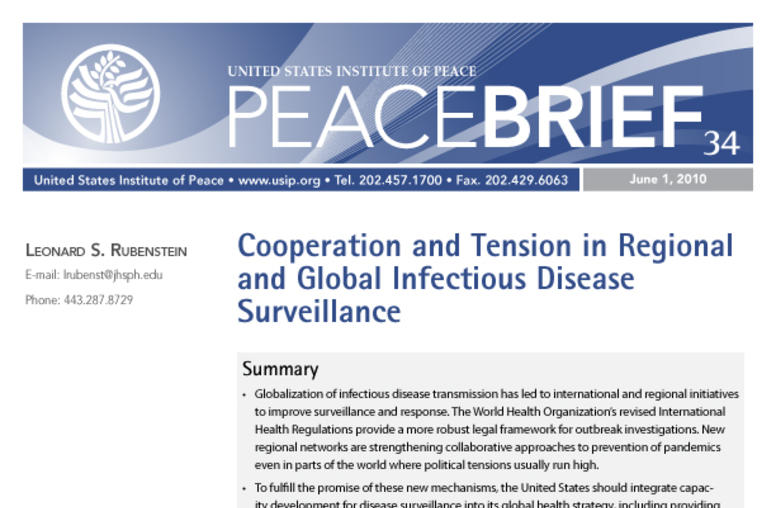
Cooperation and Tension in Regional and Global Infectious Disease Surveillance
Globalization of infectious disease transmission has led to international and regional initiatives to improve surveillance and response. The World Health Organization’s revised International Health Regulations provide a more robust legal framework for outbreak investigations. New regional networks are strengthening collaborative approaches to prevention of pandemics even in parts of the world where political tensions usually run high.